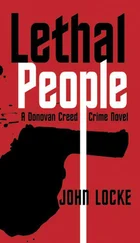John le Carr� - Smiley's People
Здесь есть возможность читать онлайн «John le Carr� - Smiley's People» весь текст электронной книги совершенно бесплатно (целиком полную версию без сокращений). В некоторых случаях можно слушать аудио, скачать через торрент в формате fb2 и присутствует краткое содержание. Жанр: Триллер, на английском языке. Описание произведения, (предисловие) а так же отзывы посетителей доступны на портале библиотеки ЛибКат.
- Название:Smiley's People
- Автор:
- Жанр:
- Год:неизвестен
- ISBN:нет данных
- Рейтинг книги:5 / 5. Голосов: 1
-
Избранное:Добавить в избранное
- Отзывы:
-
Ваша оценка:
- 100
- 1
- 2
- 3
- 4
- 5
Smiley's People: краткое содержание, описание и аннотация
Предлагаем к чтению аннотацию, описание, краткое содержание или предисловие (зависит от того, что написал сам автор книги «Smiley's People»). Если вы не нашли необходимую информацию о книге — напишите в комментариях, мы постараемся отыскать её.
Smiley's People — читать онлайн бесплатно полную книгу (весь текст) целиком
Ниже представлен текст книги, разбитый по страницам. Система сохранения места последней прочитанной страницы, позволяет с удобством читать онлайн бесплатно книгу «Smiley's People», без необходимости каждый раз заново искать на чём Вы остановились. Поставьте закладку, и сможете в любой момент перейти на страницу, на которой закончили чтение.
Интервал:
Закладка:
He knocked boldly, knowing that a soft knock is more conspicuous than a loud one. He heard the echo, and nothing else. He heard no footfall, no sudden freezing of a sound. He called 'Vladimir' through the letter-box as though he were an old friend visiting. He tried one Yale from the bunch and it stuck, he tried another and it turned. He stepped inside and closed the door, waiting for something to hit him on the back of the head but preferring the thought of a broken skull to having his face shot off. He felt dizzy and realized he was holding his breath. The same white paint, he noticed; the same prison emptiness exactly. The same queer hush, like a phone box; the same mix of public smells.
This is where we stood, Smiley remembered - the three of us, that afternoon. Toby and myself like tugs, nudging at the old battleship between us. The estate agent's particulars had said, 'penthouse'.
'Hopeless,' Toby Esterhase had announced in his Hungarian French, always the first to speak, as he turned to open the door and leave. 'I mean completely awful. I mean, I should have come and taken a look first, I was an idiot,' said Toby when Vladimir still didn't budge. 'General, please accept my apologies. This is a complete insult.'
Smiley added his own assurances. We can do better for you than this, Vladi; much; we just have to persist.
But the old man's eyes were on the window, as Smiley's were now, on this dotty forest of chimney-pots and gables and slate roofs that flourished beyond the parapet. And suddenly he had thumped a gloved paw on Smiley's shoulder :
'Better you keep your money to shoot those swine in Moscow, Max,' he had advised.
With tears running down his cheeks, and the same determined smile, Vladimir had continued to stare at the Moscow chimneys; and at his fading dreams of ever again living under a Russian sky.
' On reste ici ,' he had commanded finally, as if he were drawing up a last-ditch defence.
A tiny divan bed ran along one wall, a cooking ring stood on the sill. From the smell of putty Smiley guessed that the old man had kept whiteing the place himself, painting out the damp and filling the cracks. On the table he used for typing and eating lay an old Remington upright and a pair of worn dictionaries. His translating work, he thoughe the few extra pennies that fleshed out his pension. Pressing back his elbows as if he were having trouble with his spine, Smiley drew himself to his full if diminutive height and launched himself upon the familiar death rites for a departed spy. An Estonian Bible lay on the pine bedside locker. He probed it delicately for cut cavities then dangled it upside down for scraps of paper or photographs. Pulling open the locker drawer he found a bottle of patent pills for rejuvenating the sexually jaded and three Red Army gallantry medals mounted on a chrome bar. So much for cover, thought Smiley, wondering how on earth Vladimir and his many paramours had managed on such a tiny bed. A print of Martin Luther hung at the bedhead. Next to it, a coloured picture called the 'Red Roofs of Old Tallinn', which Vladimir must have torn from something and backed on cardboard. A second picture showed 'The Kazari Coast', a third 'Windmills and a Ruined Castle'. He delved behind each. The bedside light caught his eye. He tried the switch and when it didn't work he unplugged it, took out the bulb and fished in the wood base, but without result. Just a dead bulb, he thought. A sudden shriek from outside sent him pulling back against the wall but when he had collected himself he realized it was more of those land-borne seagulls : a whole colony had settled round the chimney-pots. He glanced over the parapet into the street again. The two loiterers had gone. They're on their way up, he thoughe my head start is over. They're not police at all, he thought; they're assassins. The motor-bike with its black side-car stood unattended. He closed the window, wondering whether there was a special Valhalla for dead spies where he and Vladimir would meet and he could put things right; telling himself he had lived a long life and that this moment was as good as any other for it to end. And not believing it for one second.
The table drawer contained sheets of plain paper, a stapler, a chewed pencil, some elastic bands and a recent quarterly telephone bill, unpaid, for the sum of seventy-eight pounds, which struck him as uncharacteristically high for Vladimir's frugal lifestyle. He opened the stapler and found nothing. He put the phone bill in his pocket to study later and kept searching, knowing it was not a real search at all, that a real search would take three men several days before they could say with certainty they had found whatever was to be found. If he was looking for anything in particular, then it was probably an address book or a diary or something which did duty for one, even if it was only a scrap of paper. He knew that sometimes old spies, even the best of them, were a little like old lovers; as age crept up on them, they began to cheat, out of fear that their powers were deserting them. They pretended they had it all in the memory, but in secret they were hanging on to their virility, in secret they wrote things down, often in some home-made code which, if they only knew it, could be unbuttoned in hours or minutes by anyone who knew the game. Names and addresses of contacts, sub-agents. Nothing was holy. Routines, times and places of meetings, worknames, phone numbers, even safe combinations written out as social-security numbers and birthdays. In his time Smiley had seen entire networks put at risk that way because one agent no longer dared to trust his head. He didn't believe Vladimir would have done that, but there was always a first time.
Tell him I have two proofs and can bring them with me ...
He was standing in what the old man would have called his kitchen : the window-sill with the gas ring on it, the tiny homemade food-store with holes drilled for ventilation. We men who cook for ourselves are half-creatures, he thought as he scanned the two shelves, tugged out the saucepan and the frying-pan, poked among the cayenne and paprika. Anywhere else in the house - even in bed - you can cut yourself off, read your books, deceive yourself that solitude is best. But in the kitchen the signs of incompleteness are too strident. Half of one black loaf. Half of one coarse sausage. Half an onion. Half a pint of milk. Half a lemon. Half a packet of black tea. Half a life. He opened anything that would open, he probed with his finger in the paprika. He found a loose tile and prised it free, he unscrewed the wooden handle of the frying-pan. About to pull open the clothes cupboard, he stopped as if listening again, but this time it was something he had seen that held him, not something he had heard.
On top of the food-store lay a whole parcel of Gauloises Caporal cigarettes, Vladimir's favourites when he couldn't get his Russians. Tipped, he noticed, reading the different legends. 'Duty free.' 'Filtre.' Marked 'Exportation' and 'Made in France.' Cellophane wrapped. He took them down. Of the ten original packets, one already missing. In the ashtray, three stubbed-out cigarettes of the same brand. In the air, now that he sniffed for it over the smell of food and putty, a faint aroma of French cigarettes.
And no cigarettes in his pocket , he remembered.
Holding the blue parcel in both hands, slowly turning it, Smiley tried to understand what it meant to him. Instinct - or better, a submerged perception yet to rise to the surface - signalled to him urgently that something about these cigarettes was wrong. Not their appearance. Not that they were stuffed with microfilm or high explosive or soft-nosed bullets or any of those weary games.
Merely the fact of their presence, here and nowhere else, was wrong.
So new, so free of dust, one packet missing, three smoked.
Читать дальшеИнтервал:
Закладка:
Похожие книги на «Smiley's People»
Представляем Вашему вниманию похожие книги на «Smiley's People» списком для выбора. Мы отобрали схожую по названию и смыслу литературу в надежде предоставить читателям больше вариантов отыскать новые, интересные, ещё непрочитанные произведения.
Обсуждение, отзывы о книге «Smiley's People» и просто собственные мнения читателей. Оставьте ваши комментарии, напишите, что Вы думаете о произведении, его смысле или главных героях. Укажите что конкретно понравилось, а что нет, и почему Вы так считаете.









